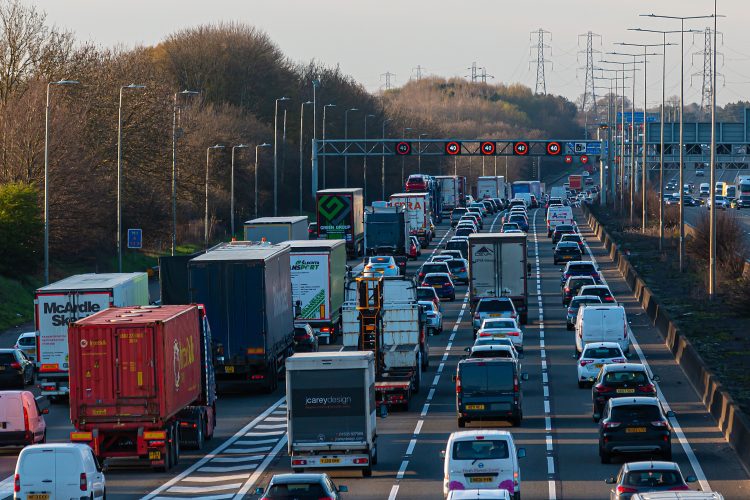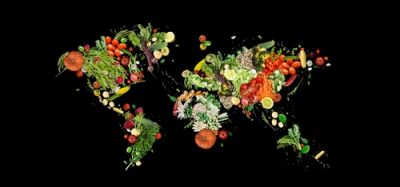Industry responds to fifth delay for post-Brexit food import checks
- Like
- Digg
- Del
- Tumblr
- VKontakte
- Buffer
- Love This
- Odnoklassniki
- Meneame
- Blogger
- Amazon
- Yahoo Mail
- Gmail
- AOL
- Newsvine
- HackerNews
- Evernote
- MySpace
- Mail.ru
- Viadeo
- Line
- Comments
- Yummly
- SMS
- Viber
- Telegram
- Subscribe
- Skype
- Facebook Messenger
- Kakao
- LiveJournal
- Yammer
- Edgar
- Fintel
- Mix
- Instapaper
- Copy Link
Posted: 30 August 2023 | Grace Galler | No comments yet
With the UK Government announcing that post-Brexit fresh food import checks are being pushed back for the fifth time, various members of the food industry share their opinion on what this might mean for the sector.


The UK Government has announced that post-Brexit checks on EU imported fresh food have been pushed back to 2024. However, this is not the first time it has been delayed, in fact, the checks have now been pushed back five times.
According to reports from The Guardian, the import checks will not commence until the end of January 2024.
Prior to the latest pushback, checks had been rescheduled to start in October 2023, however now with a further three month added, the UK Government has claimed that its decision gives “businesses more time to prepare after engagement with industry”, as noted in The Guardian.
When the checks are activated, they will included imported food products from the EU, as well as plant and animal products.
But why has the date been adjusted again? The Independent has found that reasons include concerns when it comes to costs amid inflation, while The Guardian has claimed that decision has “been interpreted as a response to concerns that the start of checks would further fuel food price inflation during the cost of living crisis”.
As well as the imported fresh-food checks being pushed back to 31 January 2024, there will also reportedly be an additional three months before there are sanitary and phytosanitary (SPS) checks on medium-risk food, animal and plant products. The Independent has said that these checks on medium-risk food will start on 30 April 2024.
Industry feedback
Having to contended with numerous date adjustments, New Food asked members of the food and beverage industry their thoughts on the UK Government’s most recent update. A spokesperson from the Food and Drink Federation (FDF) told New Food: “The delay to the Target Operating Model is unfortunate, but necessary, to ensure that the appropriate infrastructure is in place so that supplies of food and drink from the EU aren’t disrupted.
“The Government should use this time to deliver progress where it can help to simplify and cut the cost of international trade. Failure to deliver against their new timetable will add significant cost to businesses,” the FDF spokesperson continued.
In addition, the FDF has stated that the multiple delays imposed on businesses have “added to the cumulative costs facing [its] members, who have repeatedly prepared only for plans to change”. What’s more it has shown concern from parts of the industry that “continue to operate at a competitive disadvantage with EU counterparts due to asymmetric border controls on food”.
Going forward, the FDF has urgently called on the UK Government to deliver various measures. These include publishing its risk categorisation for Rest of World products and clarifying the percentage of checks facing medium risk goods entering the UK. In addition, the FDF is calling for the Government to provide a decision on government authorisation of facilities at Sevington and Bastion Point, locations it deems as “crucial for the processing of short straits traffic”.
Going further, the FDF has called on the UK Government to “provide clarity on the Common User Charge at government operated BCPs, including the final fees and which products are in scope”. Lastly it believes it is important to clarify which products the new BCPs will handle in the future, stating this is “essential” for businesses to decide the best supply route into the UK.
Meanwhile, Shane Brennan, Chief Executive of the Cold Chain Federation (CCF), defined the fifth delay as “the right decision”, before explaining: “These Brexit checks will fuel food price inflation whenever they are brought in and so the longer they are held off the better,” continued Brennan.
“It is however yet another blow to the credibility of the government that has set immovable deadlines time and again, only to move them every time. This confusion at the top will not help us with the already massive task of making EU-based businesses aware that Brexit is in fact still not done and they have to invest in the processes necessary to sell to UK customers from early next year.”
Brennan explained that he believes the UK food retailers, hospitality businesses and consumers were in line for “major disruption” because “many EU food producing businesses supplying into the UK are not ready for the new requirements”.
Brexit has cost UK households £5.8 billion in higher food bills
Recently, the CCF asked Ministers to push back the export health certificate requirement to give Government time to “ramp up” communications to EU businesses. “The decision to postpone also means that there should be a fully staffed border inspection team on the ground by the time the new requirements come into force, able to provide support and advice for these EU importers,” added Brennan.
“Meeting the new sanitary requirement will still increase costs for the EU food producers supplying into the UK, and we should expect these costs to be passed onto UK retailers and consumers but this change in the implementation timetable could make an important difference towards reducing that impact.”
New Food will keep its readers updated as the post-Brexit EU import date draws closer with any further developments.
Related topics
Food Safety, Food Security, Quality analysis & quality control (QA/QC), Regulation & Legislation, retail, Supply chain, Trade & Economy, World Food
Related organisations
British Frozen Food Federation (BFFF), Cold Chain Federation, The Guardian, The Independent, UK Government








